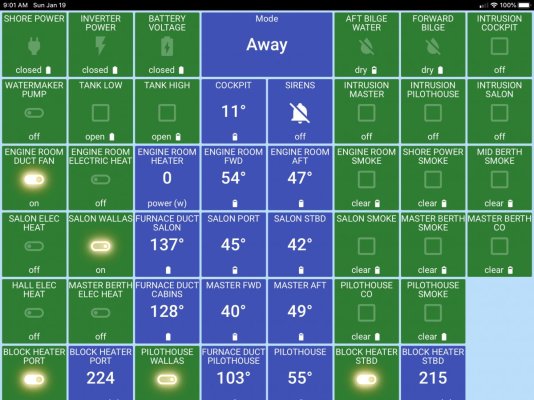dutch-barge
Senior Member
one of the smart things I have done is use all Victron stuff, which works together, and with their control units, I can take care of the electric management and bilge pumps and auto generator start and only use shore power if the solar panels did not charges the battery enough , and only turn on the electric hotwater heater IF the batteries are full and there is solar.
besides that I have a few arduino's being used, like a smart engine blower who only starts if the Delta T is 25 or more and if the Delta T is 30 it turns on an additional blower
Arduino measuring the humidity and temperature and based on settings turns on small Computer fans.
An Arduino as a intelligent bilge pump controller with no need to use a float and have a variable pump and dormant time between checks.
Thought about going to a Raspberry Pi, since the Victron management modules are based on that , and the software Victron uses was made public domain and just let that unit deal with everything.
So what do you wish to make smart/ automate?
besides that I have a few arduino's being used, like a smart engine blower who only starts if the Delta T is 25 or more and if the Delta T is 30 it turns on an additional blower
Arduino measuring the humidity and temperature and based on settings turns on small Computer fans.
An Arduino as a intelligent bilge pump controller with no need to use a float and have a variable pump and dormant time between checks.
Thought about going to a Raspberry Pi, since the Victron management modules are based on that , and the software Victron uses was made public domain and just let that unit deal with everything.
So what do you wish to make smart/ automate?











